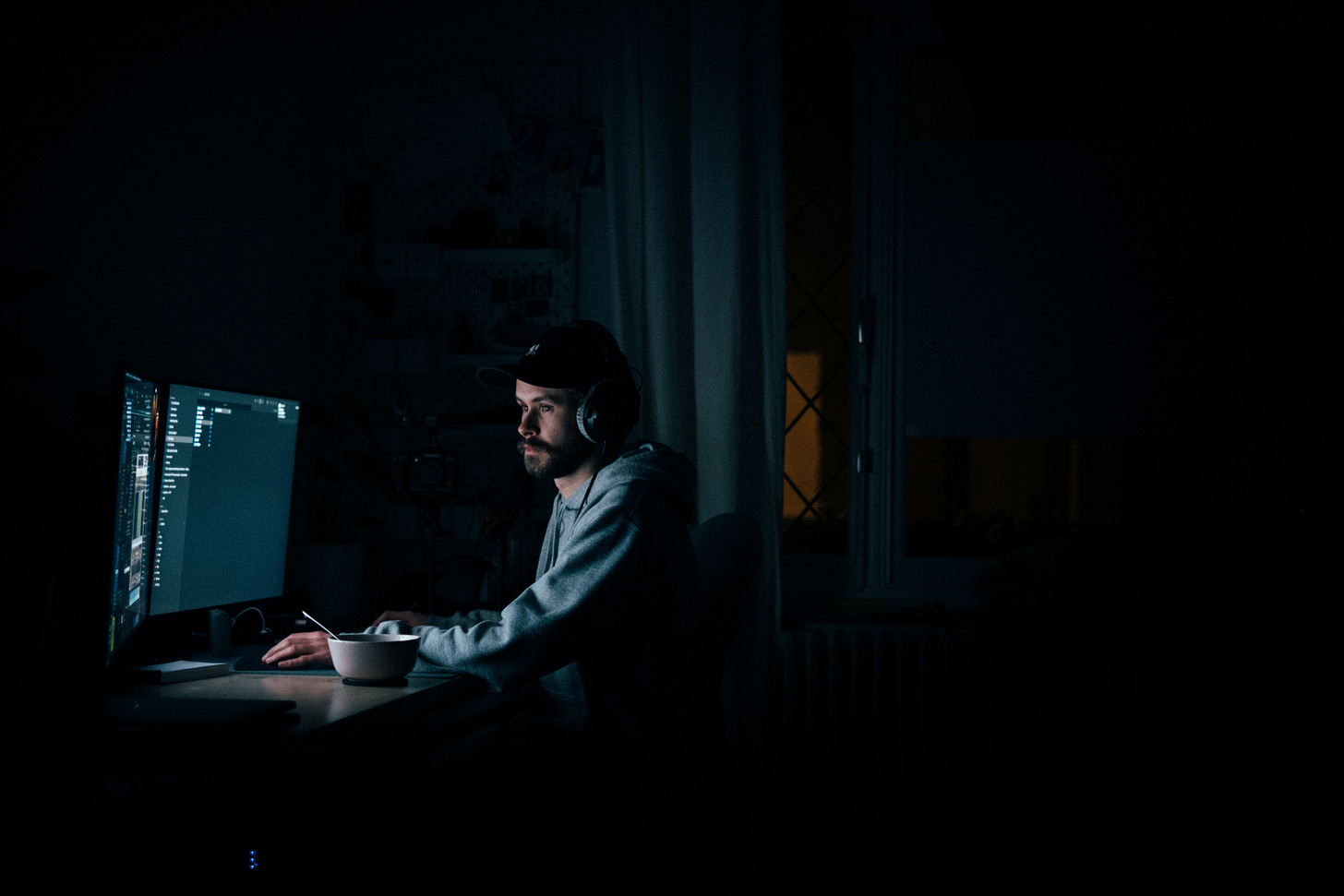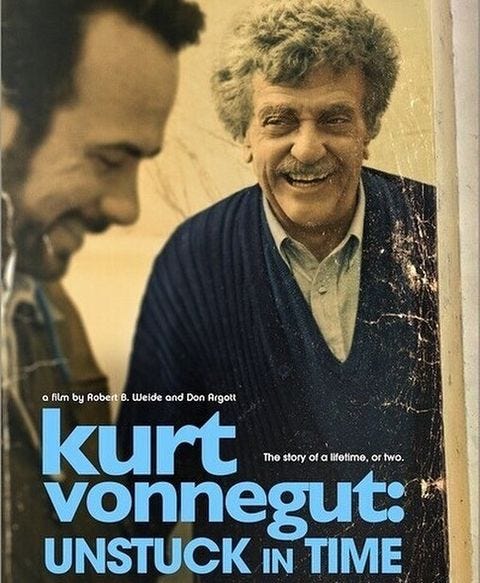#38: Three Things that got me thinking
💓Growing your soul + 👭🏽comparing siblings + ⏰working out-of-hours
Servus!
There is no shortage of things that make me think about intrinsic motivation.
Here are the most recent ones:
1. Finding out
This Vonnegut quote, shared in Shaun Usher’s wonderful Letters of Note newsletter last week:
Practice any art, music, singing, dancing, acting, drawing, painting, sculpting, poetry, fiction, essays, reportage, no matter how well or badly, not to get money and fame, but to experience becoming, to find out what’s inside you, to make your soul grow.
Kurt Vonnegut
Letter to Xavier High School
5th November 20062. Comparing siblings
This weekend I read Siblings Without Rivalry, published in 1987 and part of a series of parenting book classics by Elaine Mazlish and Adele Faber. The book covers the trap of trying to treat brothers and sisters equally, instead of according to their individual needs; the perils of comparing siblings and casting them into immutable roles; and how to step in (or out) when kids fight.
It’s a helpful book that covers familiar content if you’ve read some of the authors’ other books (How To Talk So Kids Will Listen & Listen So Kids Will Talk introduces their main ideas and tools, which can be applied to different situations). For the rest of the weekend, I’ve caught myself making comparisons—of the light but insidious kind—especially between my twin daughters’ temperaments (She loves meeting new people / She likes to observe first etc.)
I found the writing style—a mashup of stories and lessons from a fictionalised parenting workshop—rather heavy-handed. But this particular story from chapter 5, about comparing abilities and whether they’re “worth” cultivating, has stuck with me. It resonates with Vonnegut’s quote above, and with this post I published in December. The point remains valid whether you’re comparing yourself to your big sister, your upstairs neighbour, or a stranger on Instagram.
The author recalls her feeling of loss when she stopped learning to play the piano, at least in part because her sister was better at it:
I told him […] how, despite [my teacher’s] criticism and my ineptitude, I happily played my few simple pieces for hours on end; and finally, about the big consultation between my parents as to whether or not it “paid” to continue my lessons.
I knew the verdict before it came. My sister was “the musician”. Maybe they could find something else for me.
Only as the months went by did I realise how much I missed it. I couldn’t bear to listen to my sister play. Every note hurt.
Furtively, when no one was around I would take out my old books and try to teach myself. I even made some progress. But in the end, the task overwhelmed me and I gave up.
The lesson:
We want to make it clear to each of our children that the joys of scholarship, dance, drama, poetry, sport are for everyone and not reserved for those who have a special aptitude.

3. Out of hours
Working outside of a typical 9-to-5 schedule “decreases intrinsic motivation by causing people to consider better uses of their time,” according to this fresh academic paper by two researchers at the London School of Economics and Cornell University.
“The real benefit of time off on the weekend or on holidays is that it’s not just that I have time off, but my family and friends have time off, too,” says co-author Kaitlin Woolley in an LSE press release. “And so one thing that we suggest for managers is, can you create a ‘weekend shift’ so people feel like they’re in it together with other people?”
Ugh, the solution to working evenings and weekends being a bummer is that workers should feel bummed out together…?
I haven’t been able to access the full paper yet, so I don’t know the studies’ details. The effects seem modest, and it appears in particular that being reminded that they’re working outside of typical hours makes students or workers find their tasks less enjoyable, more than their schedule itself. I’m also curious to know the difference between people who have truly chosen to work or study “out of hours” and those who’ve been imposed a schedule.






I'm a big Kurt Vonnegut fan...found myself turning to him a lot over the past couple of years. I also totally agree that you don't need to be 'good' or 'talented' to enjoy making music or art. I wouldn't say I have any natural ability at either (at least not in the way that my mum and brother have) - but I enjoy both! I feel incredibly lucky that my parents paid for piano lessons for me, despite the fact I made little tangible progress. It was a life skill that I fell back on in my 30's and it gave be a great deal of comfort at a very difficult time in my life. I played for my kids when they were very little - but they've become a tougher audience of late, so I've just gone back to doing it entirely for my own pleasure when they are not around. I set myself a task to actually learn a new song this past week (something I hadn't done in far too long) and have had great fun learning the Locomotion (had no idea it was written by Carole King!). I played it so slowly at first it sounded weirdly like the theme to Twin Peaks - but I've now got it up to a cheerful tempo!
Loved the Vonnegut quote!